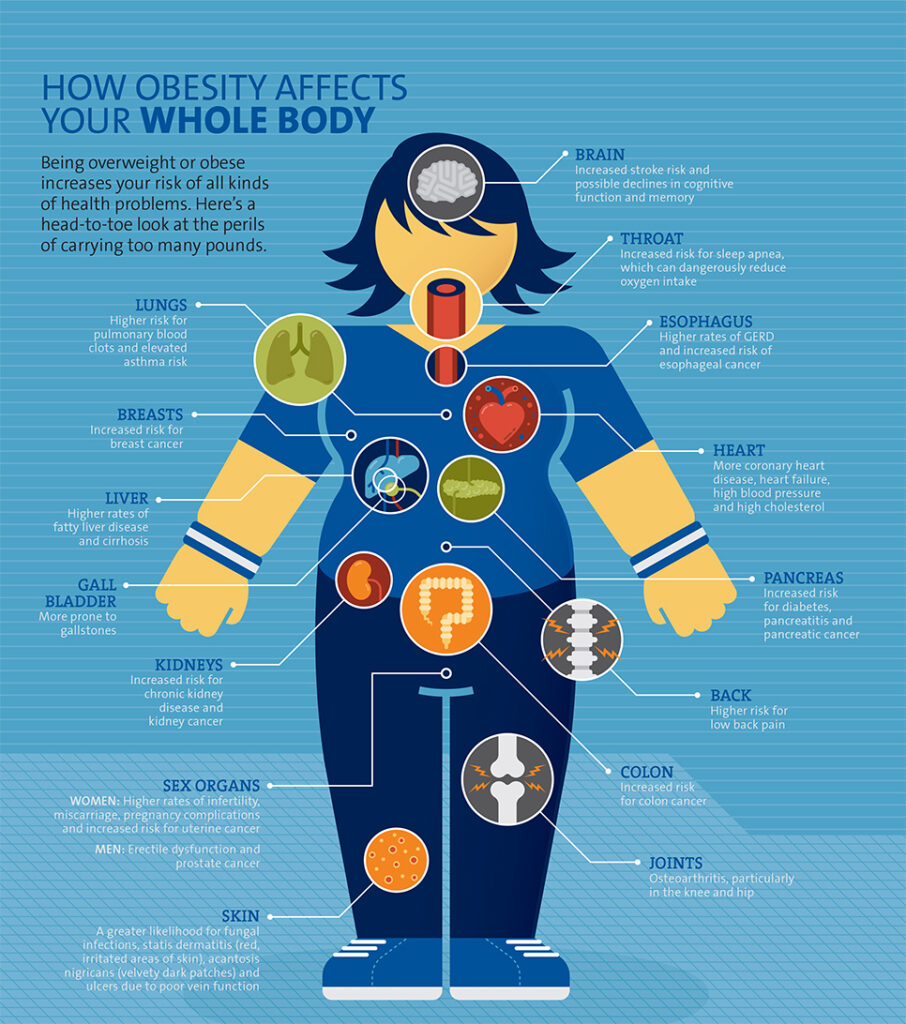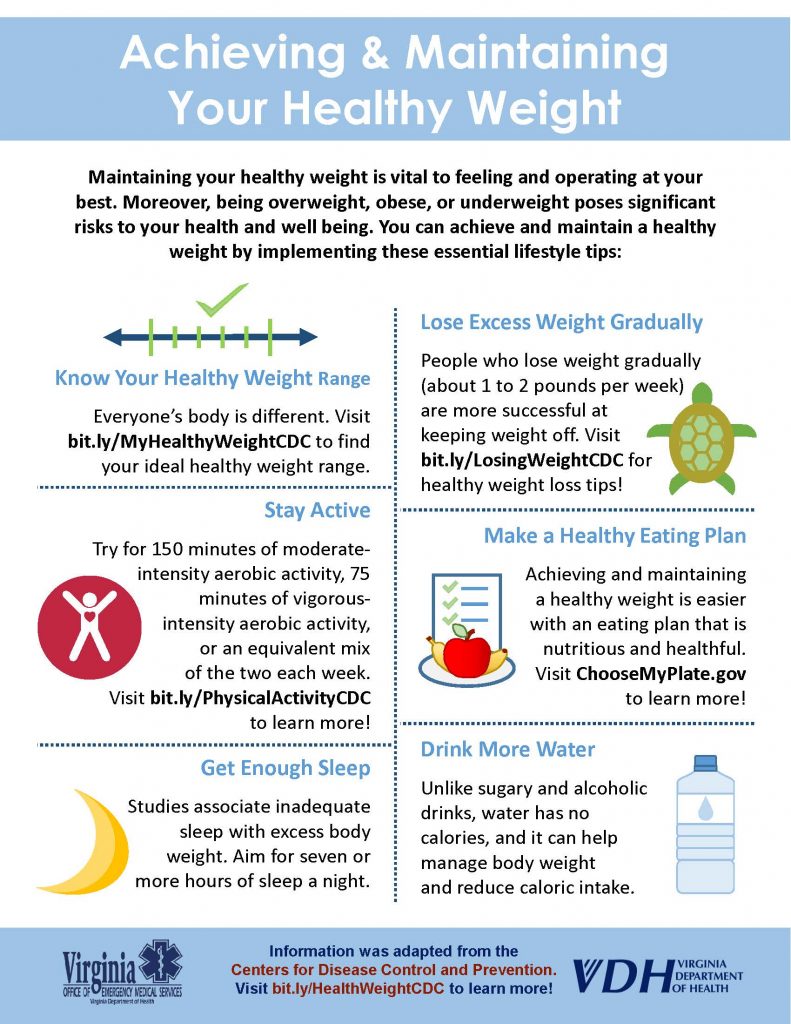
In this article, we will explore some tips and strategies that can help you maintain a healthy weight. We’ll discuss the importance of balanced nutrition, regular physical activity, and finding a sustainable approach to eating. You’ll also learn about the role of sleep and stress management in weight maintenance. By the end of this article, you’ll have a better understanding of how to achieve and sustain a healthy weight. So, let’s get started! Many individuals struggle with maintaining a healthy weight throughout their lives. With busy schedules, tempting food choices, and limited time for exercise, it can be a challenge to prioritize weight management. However, achieving and maintaining a healthy weight is crucial for overall wellbeing and can reduce the risk of various health conditions. In this article, we will explore the importance of maintaining a healthy weight, what constitutes a healthy weight, the risks of being overweight or underweight, and provide practical tips for achieving and maintaining a healthy weight.

This image is property of i.ytimg.com.
The Importance of Maintaining a Healthy Weight
Maintaining a healthy weight is not just about appearance; it is vital for your overall health and wellbeing. When you are at a healthy weight, your body functions optimally, and you have a reduced risk of developing chronic diseases such as heart disease, diabetes, and certain types of cancer. Additionally, maintaining a healthy weight can boost your energy levels, improve your mood, and enhance your self-confidence.
What Constitutes a Healthy Weight
Determining what constitutes a healthy weight can vary based on several factors such as age, sex, height, and body composition. One common method that healthcare professionals use to assess healthy weight is the Body Mass Index (BMI). BMI is calculated by dividing a person’s weight in kilograms by the square of their height in meters. A BMI between 18.5 and 24.9 is generally considered within the healthy weight range.
It is essential to note that BMI does not account for individual variations in body composition, such as muscle mass. Therefore, it should be used as a guideline rather than a definitive measure of healthy weight. Consulting with a healthcare professional or a registered dietitian can provide more personalized advice regarding healthy weight goals.
The Risks of Being Overweight or Underweight
Both being overweight and underweight can have significant health implications. Carrying excess weight increases the risk of developing various health conditions, including heart disease, high blood pressure, type 2 diabetes, and certain types of cancer. Being overweight can also result in joint pain, sleep apnea, and reduced mobility.
On the other hand, being underweight can compromise your immune system, leading to increased susceptibility to infections and illnesses. It can also negatively affect bone health, muscle strength, and overall energy levels. Maintaining a healthy weight is crucial for minimizing the risks associated with both overweight and underweight status.
Eating a Balanced Diet
One of the fundamental pillars of weight maintenance is eating a balanced diet. A balanced diet provides the necessary nutrients your body needs to function optimally while managing caloric intake. Here are some essential considerations for a balanced diet:
The Role of Balanced Nutrition in Weight Maintenance
When aiming to maintain a healthy weight, it is crucial to focus on providing your body with a balance of macronutrients (carbohydrates, proteins, and fats) and micronutrients (vitamins and minerals). Each nutrient plays a vital role in supporting various bodily functions and can contribute to feelings of satiety and overall satisfaction.
The Importance of Portion Control
Portion control plays a crucial role in maintaining a healthy weight. Even if you are consuming nutritious foods, eating excessively can lead to weight gain. Be mindful of your portion sizes and listen to your body’s hunger and satiety cues. It can be helpful to use smaller plates and bowls to control portion sizes and avoid eating straight from large packages.
Incorporating Fruits and Vegetables
Fruits and vegetables are low in calories and high in essential vitamins, minerals, and dietary fiber. They provide valuable nutrients while contributing to feelings of fullness and satisfaction. Aim to include a variety of colorful fruits and vegetables in your diet to ensure you are receiving a wide range of nutrients.
Choosing Lean Protein Sources
Protein is an essential macronutrient that supports muscle growth, repair, and overall satiety. Opt for lean protein sources such as skinless poultry, fish, legumes, and tofu. These options are lower in saturated fat and can be incorporated into a variety of meals.
Limiting Processed Foods and Added Sugars
Processed foods and foods high in added sugars typically lack essential nutrients and can contribute to weight gain. These foods are often high in calories but low in nutritional value. Instead, focus on consuming whole, unprocessed foods as much as possible. Be mindful of added sugars in beverages, packaged snacks, and desserts, as these can add unnecessary calories to your diet.

This image is property of images.hindustantimes.com.
Regular Physical Activity
In addition to a balanced diet, regular physical activity is crucial for weight management and overall health. Engaging in regular exercise helps burn calories, build muscle, and maintain a healthy metabolism. Here are some important considerations for incorporating physical activity into your routine:
The Benefits of Exercise for Weight Management
Regular exercise offers numerous benefits for weight management. It helps to burn calories, increase metabolism, and build lean muscle mass. Engaging in physical activity also promotes cardiovascular health, improves mood, and enhances overall energy levels.
Finding Activities That You Enjoy
To maintain a healthy weight, it is crucial to find physical activities that you enjoy. This will increase your chances of sticking with them in the long run. Experiment with different activities such as running, swimming, dancing, cycling, or team sports. Choose activities that are enjoyable and fit well with your lifestyle and preferences.
Creating a Consistent Exercise Routine
Consistency is key when it comes to physical activity and weight management. Aim for at least 150 minutes of moderate-intensity aerobic activity or 75 minutes of vigorous-intensity aerobic activity per week, along with strength training exercises at least two days a week. Schedule exercise sessions into your weekly routine to make it a priority and ensure regularity.
Managing Caloric Intake
Controlling caloric intake is essential for weight maintenance. It is crucial to find the right balance between the calories consumed and the calories burned. Here are some strategies for managing caloric intake:
Understanding Caloric Needs
Understanding your individual caloric needs is essential for weight management. Factors such as age, sex, activity level, and metabolism all play a role in determining your daily caloric needs. Online calculators or consulting with a registered dietitian can help you determine an appropriate caloric intake for weight maintenance.
Tracking Food and Beverage Consumption
Keeping track of your food and beverage consumption can provide valuable insights into your caloric intake and potential areas for improvement. There are various smartphone apps and online tools available that can help you track your nutrition and provide nutritional information for thousands of foods.
Making Smart Food Choices
Focus on choosing nutrient-dense foods that offer high nutritional value for fewer calories. Opt for whole grains, lean proteins, fruits, and vegetables. Prioritize foods that are naturally low in calories and high in fiber for increased satiety.
Avoiding Emotional or Binge Eating
Many individuals struggle with emotional or binge eating, which can lead to weight gain and difficulties with weight maintenance. It is essential to identify triggers for emotional eating and seek alternative ways to cope with emotions, such as engaging in hobbies, practicing mindfulness, or seeking support from friends or professionals.

This image is property of advantagecaredtc.org.
Building Healthy Habits
Establishing healthy habits is crucial for long-term weight maintenance. Instead of relying on short-term diets or quick fixes, it is essential to create a sustainable lifestyle that supports your overall health. Here are some strategies for building healthy habits:
Setting Realistic Goals
Set realistic and achievable goals when it comes to weight management. Focus on making gradual changes to your eating and exercise habits that are sustainable in the long run. Be patient and embrace progress over perfection.
Creating a Supportive Environment
Surround yourself with a supportive environment that encourages healthy habits. Engage in activities with friends or family that promote physical activity and make healthier food choices together. Seek support from loved ones who can help keep you accountable and motivated.
Practicing Mindful Eating
Mindful eating involves paying attention to your food choices, eating slowly, and savoring each bite. It helps you tune in to your body’s hunger and satiety signals, preventing overeating and promoting overall satisfaction. Avoid distractions while eating, such as electronics or multitasking.
Developing Balanced and Sustainable Lifestyle Habits
Maintaining a healthy weight is about more than just diet and exercise; it also involves adopting a holistic approach to your lifestyle. Incorporate stress management techniques, adequate sleep, and self-care practices into your routine. Find healthy activities that bring you joy and make them a regular part of your life.
Getting Adequate Sleep
Adequate sleep is often overlooked but plays a significant role in weight management. Lack of sleep can disrupt your hormone balance, leading to increased appetite and cravings for high-calorie foods. Here are some tips for getting adequate sleep:
The Link Between Sleep and Weight
Research has shown a link between sleep and weight. Individuals who do not get enough sleep are more likely to be overweight or obese. Lack of sleep can affect hunger hormones, increase appetite, and disrupt overall metabolism.
Establishing a Regular Sleep Schedule
Try to establish a regular sleep schedule by going to bed and waking up at the same time each day, even on weekends. This consistency helps regulate your body’s internal clock and promotes better sleep quality.
Creating a Relaxing Bedtime Routine
Develop a relaxing bedtime routine to signal to your body that it is time to wind down. Avoid stimulating activities before bed, such as intense exercise or screen time. Instead, choose relaxing activities such as reading, taking a warm bath, or practicing meditation or deep breathing exercises to prepare your body and mind for sleep.

This image is property of www.dukehealth.org.
Managing Stress Levels
Stress can have a significant impact on weight management. When you are under chronic stress, it can lead to emotional eating, poor food choices, and disruptions in sleep patterns. Here are some strategies for managing stress:
The Impact of Stress on Weight Management
Stress triggers the release of cortisol, a hormone that can increase appetite and promote the storage of fat, particularly around the abdominal area. Additionally, stressed individuals may turn to comfort or emotional eating as a coping mechanism, leading to weight gain.
Finding Effective Stress Relief Strategies
Finding effective stress relief strategies is essential for weight management. Identify healthy coping mechanisms that work for you, such as engaging in physical activity, practicing mindfulness or meditation, spending time in nature, or engaging in hobbies or activities that bring you joy.
Practicing Relaxation Techniques
Incorporate relaxation techniques into your daily routine to help manage stress levels. Deep breathing exercises, yoga, tai chi, or listening to calming music are all effective at reducing stress and promoting overall wellbeing.
Seeking Professional Guidance
Sometimes, achieving and maintaining a healthy weight may require professional guidance. If you are struggling with weight management, consider seeking assistance from healthcare professionals who specialize in weight loss and maintenance. Here are some options to explore:
Consulting with a Healthcare Professional
Consult with your primary care physician or a healthcare professional with expertise in weight management. They can assess your overall health, recommend appropriate dietary and lifestyle modifications, and provide guidance tailored to your specific needs.
Working with a Registered Dietitian or Nutritionist
Registered dietitians or nutritionists can provide personalized guidance and support in achieving and maintaining a healthy weight. They can help create meal plans, develop strategies for managing caloric intake, educate about nutrition, and provide ongoing support and accountability.
Considering Behavioral Therapy or Support Groups
Behavioral therapy and support groups can be valuable resources for individuals struggling with weight management. These resources can provide emotional support, teach coping strategies, and help address any underlying psychological factors that may contribute to weight struggles.

This image is property of www.vdh.virginia.gov.
Maintaining Motivation
Maintaining long-term motivation is key to successfully managing a healthy weight. Here are some strategies to help you stay motivated:
Celebrating Goal Achievements
Celebrate your achievements along the way, regardless of their size. Recognize and reward yourself for reaching milestones or making positive lifestyle changes. This positive reinforcement can help keep you motivated and inspired.
Finding Supportive Accountability Partners
Having a support system can make a significant difference in your weight management journey. Find accountability partners who share similar goals or join online communities or support groups focused on healthy living. Surrounding yourself with like-minded individuals can provide support, encouragement, and motivation.
Incorporating Variety into Your Routine
Keep your routine exciting and fresh by incorporating variety into your diet and exercise choices. Try new recipes, explore different forms of physical activity, and experiment with different healthy lifestyle habits. Variety can help prevent boredom and keep your motivation levels high.
Conclusion
Achieving and maintaining a healthy weight requires a combination of healthy eating, regular exercise, and mindful lifestyle habits. By prioritizing balanced nutrition, engaging in physical activity, managing caloric intake, and seeking professional guidance when needed, you can establish sustainable habits that support your long-term health and weight goals. Remember, maintaining a healthy weight is not just about the number on the scale, but about overall wellbeing and optimal health.